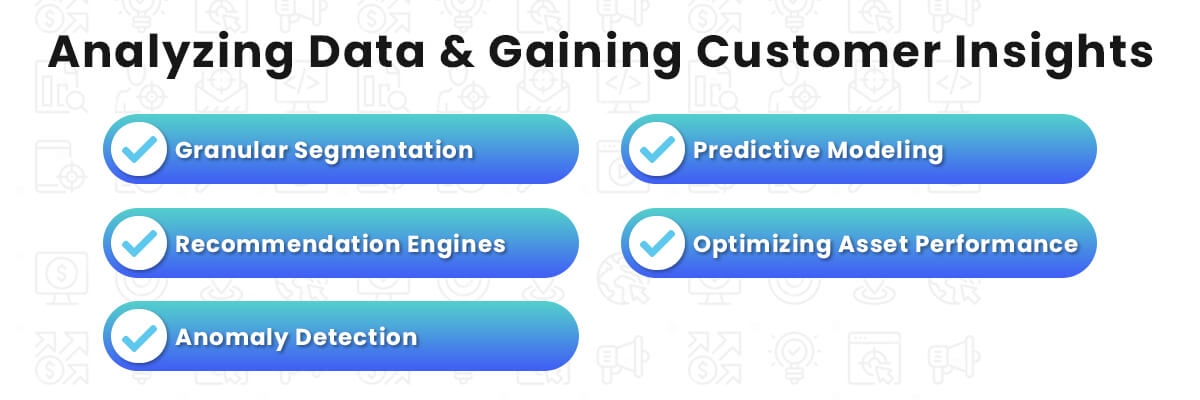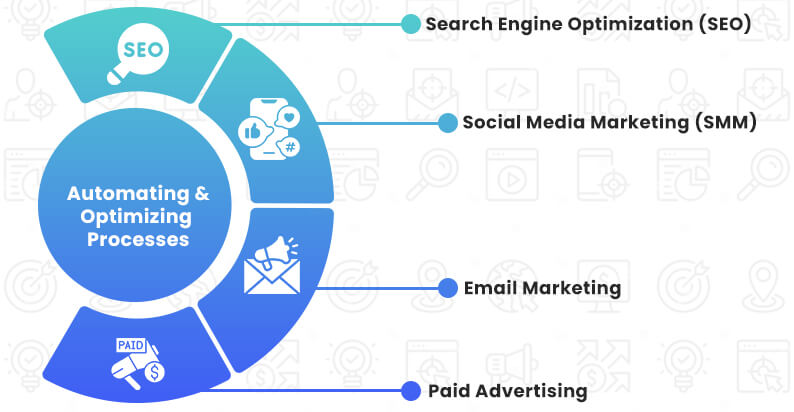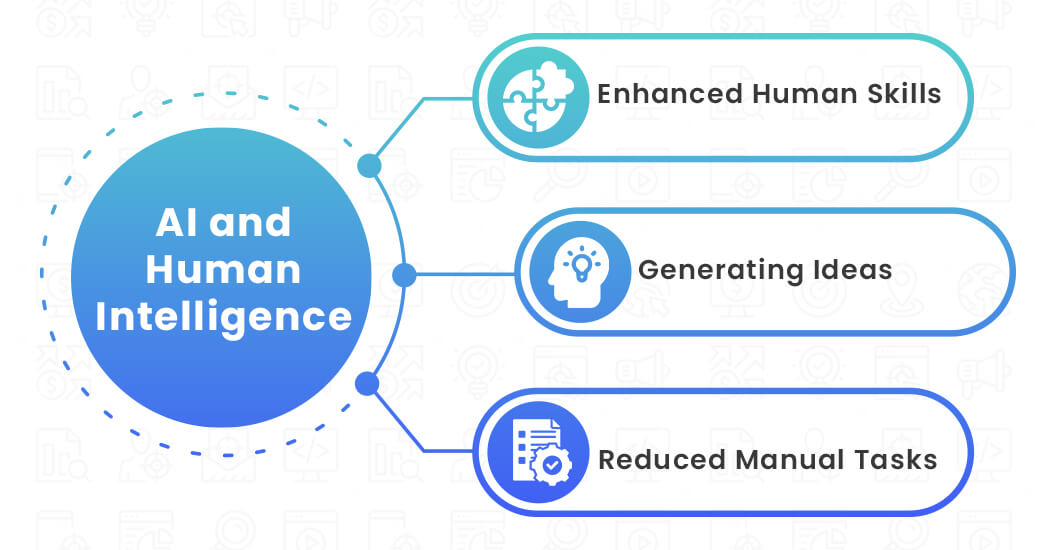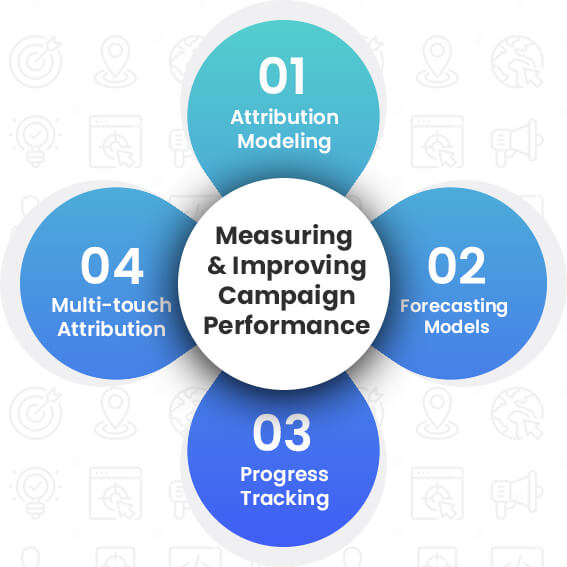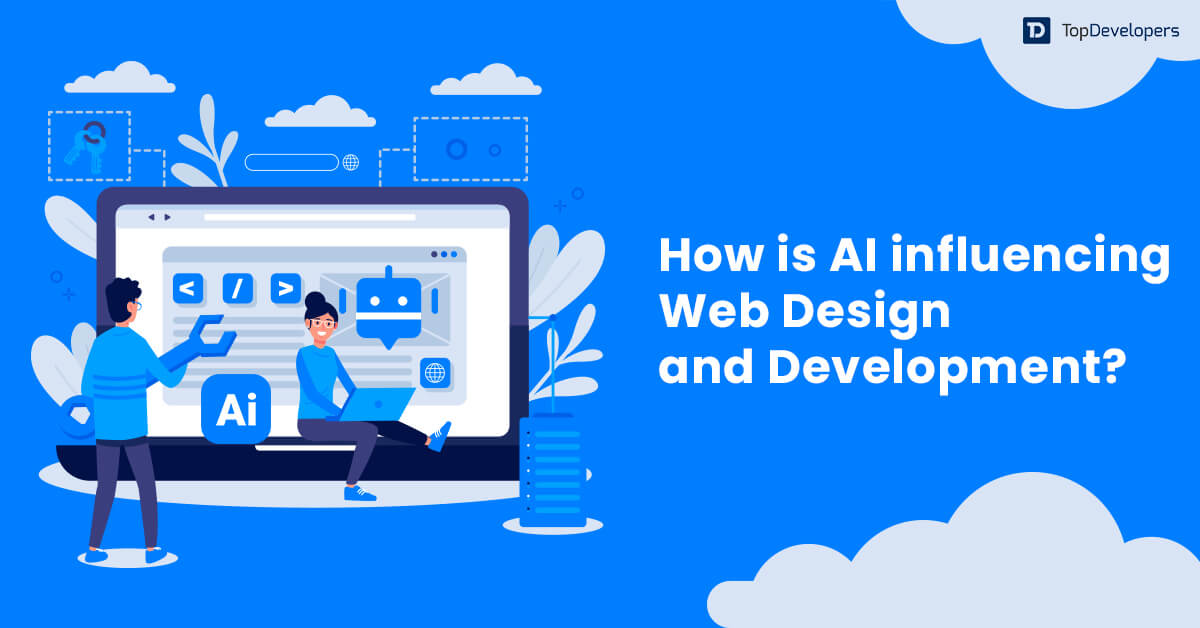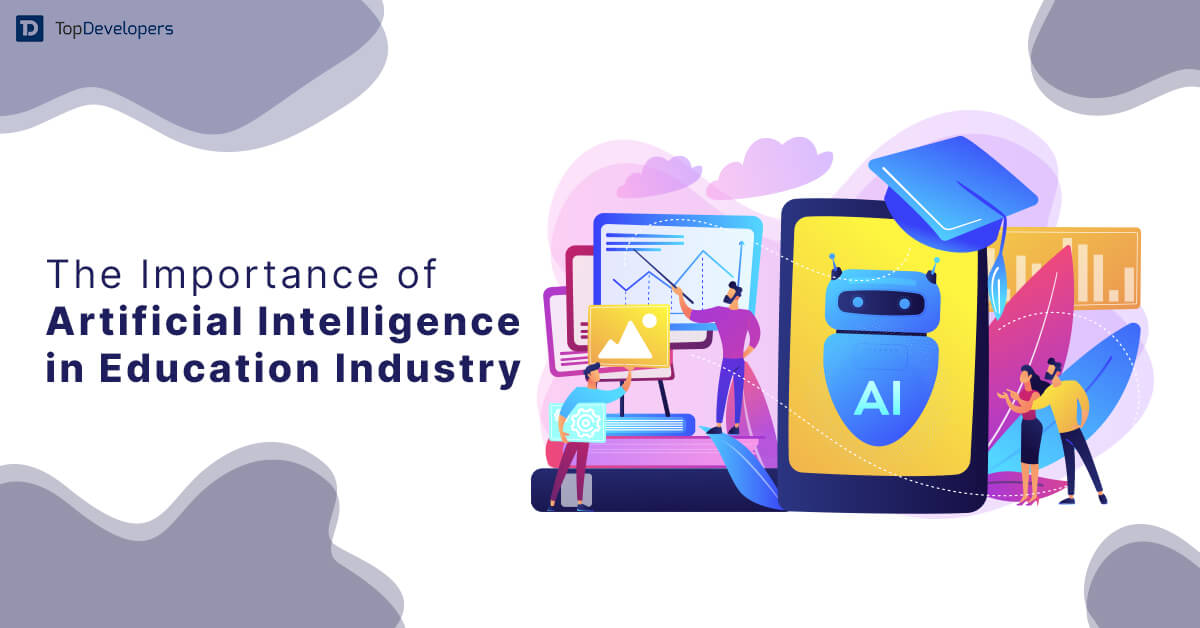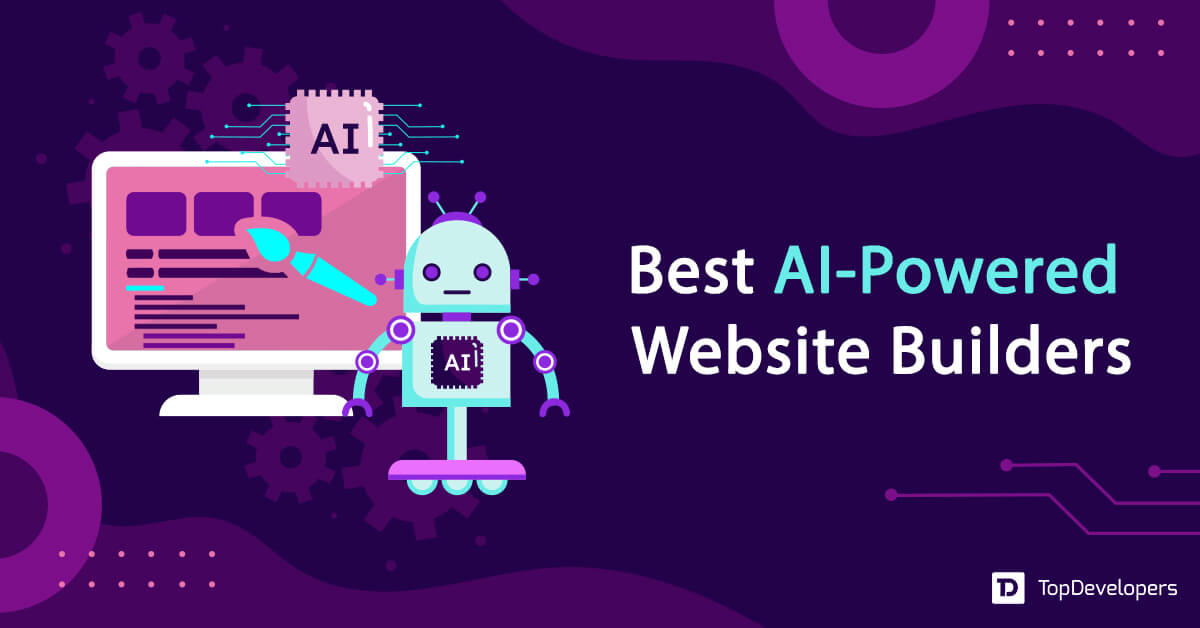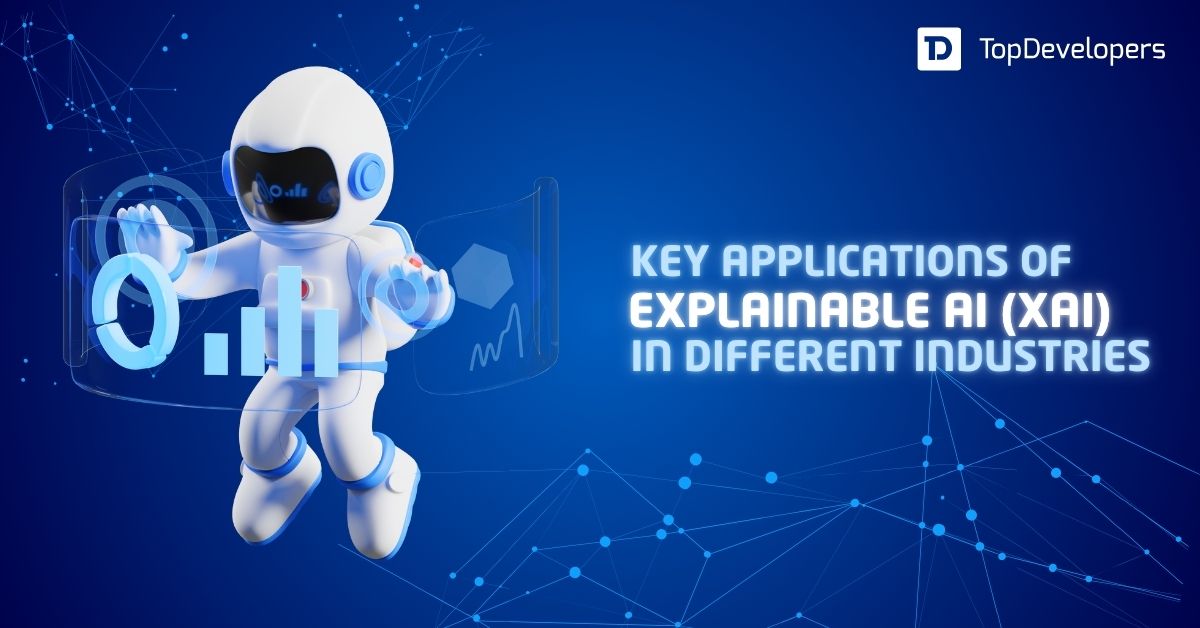
The corporate sector is being revolutionized by artificial intelligence (AI) in hitherto unheard-of proportions. From automating chores and streamlining processes to improving customer experience and allowing innovation, artificial intelligence in digital marketing is generating new opportunities and problems for companies in many different sectors.
Businesses cannot afford to overlook the possibilities of artificial intelligence today since it will give them a competitive edge and enable them to reach their objectives; nevertheless, implementing AI also calls for careful planning, ethical considerations, and ongoing education since it is a complicated and developing field that calls for constant adaptation and improvement. Businesses cannot ignore AI nowadays; hence, they must welcome it with a responsible and strategic approach instead.
Table of Contents
- AI is capturing all markets
- Digital marketing is the need of the hour
- Massive Market Growth:
- Dominance of Mobile Advertising:
- Video Content’s Rising Influence:
- The integration of AI into paid media strategies yields a high return on investment (ROI).
- Social media and search engine powerhouses:
- Content Marketing and SEO Remain Crucial:
- Consumer Trust in Influencers:
- Growing Social Media Usage:
- How is AI transforming digital marketing today?
- Analyzing Data and Gaining Customer Insights
- Granular Segmentation
- Predictive Modeling
- Recommendation Engines
- Optimizing Asset Performance
- Anomaly Detection
- Creating Personalized and Relevant Content
- Dynamic Recommendations
- Customized Messaging
- Tailored Offers
- Including Personal Data
- Automating and Optimizing Processes
- Search Engine Optimization (SEO)
- Social Media Marketing (SMM)
- Email Marketing
- Paid Advertising
- Enhanced Human Skills
- Generating Ideas
- Reduced Manual Tasks
- Measuring and Improving Campaign Performance
- Important uses include:
- Attribution Modeling
- Forecasting Models
- Progress Tracking
- Multi-touch Attribution
- Which AI Technologies Enable Marketing?
- Generative AI:
- Predictive Analytics:
- Agentic (Autonomous) AI:
- AI-Powered Personalization Engines:
- Customer Intelligence Systems:
- Conversational AI (Chatbots & Virtual Assistants):
- AI-Driven Search and Recommendation Engines:
- AI for Marketing Automation & Optimization:
- Natural Language Processing (NLP):
- Computer Vision:
- The Best Tools for Franchise AI Digital Marketing
- Opportunities and Challenges with AI in Digital Marketing
- Gear up your marketing campaign using AI
AI is capturing all markets
With forecasts pointing toward the AI market valued at $62.35 billion in staggering statistics by 2027 at a wonderful compound annual growth rate (CAGR) of 42.2 percent, AI’s incredible expansion can be seen in its startling numbers.
Still most common is the deployment of artificial intelligence by the software sector under prescriptive analytics and machine learning. By streamlining manufacturing processes, artificial intelligence-powered automation also benefits the manufacturing sector.
Diagnostic tools for medication research and tailored therapies help to show how artificial intelligence is entering healthcare; banking organizations depend on AI algorithms for risk assessments, fraud detection, and customer service improvement; and there is much more for other sectors.
Nowadays, people view artificial intelligence companies as innovative technological startups. Using enormous data sets and cutting-edge neural networks, its engineers and developers produce artificial intelligence tools and apps that exceed human capacity in focused uses.
-
Explosive Market Growth:
By the end of 2025, the worldwide artificial intelligence industry is expected to be between $757 billion and $1.2 trillion; by 2034, estimates point to it possibly reaching $3.6 trillion. Between 19% and above 28%, annual growth rates point to an unrelenting increase.
-
Ubiquitous Adoption:
With 75% of organizations likely to raise their AI investments in 2025, around 83–85% of enterprises today give AI top importance. Not limited to tech behemoths, 40% of startups worldwide are including artificial intelligence as a fundamental technology.
-
Sectoral Penetration:
Artificial intelligence is innovating in almost every industry.
- Marketing: By 2034, artificial intelligence is expected to have generated $217 billion alone.
- AI drives predictive analytics, fraud detection, tailored suggestions, and automation in healthcare, finance, retail, and logistics.
- Mobile Apps: Modern apps’ hyper-personalizing, chatbots, voice assistants, AR/VR, and security elements all center on AI.
-
Generative AI’s Rapid Rise:
The fastest-growing segment, predicted to reach $220 billion in 2025 and $1.3 trillion by 2032, is generative artificial intelligence, applied for content production, automation, and customer assistance.
-
Economic and Workforce Impact:
By 2030, artificial intelligence is expected to support up to $16 trillion of worldwide GDP. Millions of new positions in AI development, deployment, and management are being generated in the fast-developing AI-driven job market.
-
Regional Trends:
While Asia-Pacific is seeing the fastest adoption rates—45% annual increase in 2025—North America leads in artificial intelligence investments and market share.
Digital marketing is the need of the hour
Rapid technological advancements and evolving customer behavior have made digital marketing an urgent necessity. These are the main reasons digital marketing is crucial in 2025:
-
Massive Market Growth:
Projected to reach around $472.5 billion in 2025, the worldwide digital marketing market is forecast to expand at a compound annual growth rate (CAGR) of roughly 13.6% until 2033, reaching $1.3 trillion by then.
-
Dominance of Mobile Advertising:
Mobile advertising is expected to account for 70% of overall ad spending by 2028 as consumers increasingly rely on smartphones for browsing and buying, making it the pillar of digital marketing.
-
Video Content’s Rising Influence:
Video advertising is exploding, with a projected market value of $207.5 billion in 2025. By up to 80%, short-form interactive movies can increase sales and conversions, stressing their value.
-
The integration of AI into paid media strategies yields a high return on investment (ROI).
Paid media and marketing technologies receive almost half of marketing expenses. For 51% of companies, generative AI also drives operational enhancements that improve marketing efficiency and personalization ability.
-
Social media and search engine powerhouses:
Google alone is expected to bring in over $357 billion by 2026; Google and Facebook still rule digital advertising sales. Social media is absolutely essential for marketers, as platforms like TikTok are fast expanding and predicted to increase ad revenues to $33.6 billion by 2025.
-
Content Marketing and SEO Remain Crucial:
84% of companies use content marketing methods; 76% of marketers use blogs. With 93% of website traffic driven by SEO, the need for optimal online presence becomes even more important.
-
Consumer Trust in Influencers:
With the market predicted to reach $23.6 billion in 2025, influencer marketing is a crucial tactic since almost half of millennials trust recommendations more than conventional commercials.
-
Growing Social Media Usage:
With individuals spending over two hours every day across several platforms, there will be an estimated 5.42 billion social media users globally in 2025. Engagement and brand development depend on social media marketing, so it is vital.
How is AI transforming digital marketing today?
Artificial intelligence (AI) transforms consumer behavior and brand approach toward digital marketing. While automating important marketing chores, artificial intelligence offers priceless insights into consumer behavior by processing and analyzing enormous volumes of data.
Here is a comprehensive analysis of how digital marketing artificial intelligence will affect:
Analyzing Data and Gaining Customer Insights
By means of artificial intelligence, marketers can examine copious amounts of data and obtain insightful understanding of consumer behavior, preferences, and wants. AI systems with machine learning and deep learning skills can examine data points across channels to find trends and connections that would be impossible for humans to find handmade.
By means of data analysis, artificial intelligence advances to:
- Organizing massive amounts of structured and unstructured data from many sources—websites, social media, customer relationship management systems, emails, polls, etc. This approach provides a whole 360-degree perspective of the client.
- Looking at data holistically helps one to find hidden links and understand difficult behavior. AI can find, for example, that consumers who interact with a given material also buy it.
- The system is constantly learning from fresh data and, over time, enhancing its analytics, forecasts, and recommendations. Processing additional data helps the algorithms become ever more accurate.
These AI-enabled insights let internet marketers segment consumers, forecast future behavior, customize interaction, and run campaigns to maximize outcomes. Higher customer happiness, involvement, conversions, and retention result from artificial intelligence analytics.
-
Granular Segmentation
Customer data is handled with machine learning to properly categorize audiences. Equipped with demographics, psychographics, behavior, transaction history, social data, and geography, artificial intelligence sorts consumers according to commonalities and preferences. This process provides customized brand encounters.
For instance, e-commerce groups consumers based on previous online interactions. Despite providing retention incentives, the goal is to influence potential conversions, and VIP customers receive unique benefits.
-
Predictive Modeling
Through predictive analytics and automation, artificial intelligence and digital marketing allow for more customized, optimal customer experiences. Historical trends suggest that artificial intelligence can remarkably accurately forecast future events. This fosters proactive marketing.
AI can find possible customer turnover, project income growth, or assess the likelihood of a lead turning into business. Marketers should deliberately focus on the most profitable prospects and aggressively solve possible issues ahead of time.
Chatbots equipped with artificial intelligence can easily grasp questions and lead consumers in the right direction. The bot can deliberately show possible sales that the client was looking for or that would enable them to purchase particular items, considering their demand.
-
Recommendation Engines
Using artificial intelligence, these engines examine consumer preferences and behavior across several touchpoints. For every consumer, the team painstakingly crafts customized goods, services, and content. Such effort raises conversion rates greatly.
Customized content suggestions from Netflix and Amazon are driven by AI analysis of search keywords, browsing history, purchases, ratings, and other variables.
Personalized shopping awaits customers at the store.
-
Optimizing Asset Performance
By testing hundreds of content variants and creatives with various audiences, artificial intelligence systems can identify the ideal mix that produces the highest engagement. Marketers can then concentrate funds on the most successful assets.
Uberflip, along with other tools, uses machine learning to test various elements such as headlines, graphics, calls to action, and layouts. Artificial intelligence systems keep learning and getting better all the time.
-
Anomaly Detection
AI systems are excellent at spotting anomalies or outliers in data that deviate from predicted trends. This allows for the easy detection of any abrupt positive or negative changes.
An unanticipated increase in website visitors, for instance, could point to a technical flaw or a viral reference bringing attention. Early detection speeds up problem addressing.
Despite its challenges, artificial intelligence holds a promising future. Many think the future of artificial intelligence will bring new eras of mobility via driverless cars, revolutionize healthcare with better diagnostics and medication development, and modify our interactions with technology with simpler interfaces and predictive analytics. Thought leaders, however, advocate for the ethical growth of artificial intelligence to avoid such negative effects.
Creating Personalized and Relevant Content
Artificial intelligence serves three purposes in digital marketing: data analysis, content personalization, and campaign optimization. The personalizing powers of artificial intelligence in digital marketing are unparalleled. Customer data serves as the foundation for artificial intelligence systems to maximize content on a per-user basis.
Customized stories and material created by advanced natural language generating technology (NLG) appeal to consumers. The book reads naturally and charmingly grabs the reader. From product descriptions to social media posts, artificial intelligence creates a vast spectrum of material.
Here are some ways that artificial intelligence enables the creation of tailored content:
-
Dynamic Recommendations
Examining personal preferences and real-time context allows artificial intelligence for digital marketing to provide tailored items and recommendations. This increases conversion rates. A pop-up can suggest to a customer looking at formal shirts that they should also consider new formal pants.
-
Customized Messaging
AI customizes messaging to fit the customer’s tastes and present journey stage by using past interactions and buying data. One can also use emotional targeting. For example, the AI system provides copy that highlights the characteristics of scarcity in promotional materials for consumers.
-
Tailored Offers
Customized discounts, promotions, or incentives enthrall consumers. An AI-powered email, for instance, would offer a 20% off coupon for hiking gear if the buyer already had trekking shoes.
-
Including Personal Data
Focused content gains more relevance when it incorporates elements such as first names, locations, and past purchases. In an online store, for instance, artificial intelligence can provide personalized product descriptions for every user.
Internet marketers can greatly increase engagement and conversion rates using artificial intelligence and digital marketing systems, constantly improving material in real time.
Automating and Optimizing Processes
By automating repeated, high-volume chores, artificial intelligence is transforming digital marketing. This process frees marketers to concentrate on strategic issues. Furthermore, scalable and efficient are AI-based automated procedures.
Several important artificial intelligence digital marketing tools consist of
-
Search Engine Optimization (SEO)
- Using keyword research and analysis to uncover low-competition, high-volume phrases
- Site audits locate technological issues influencing search engine placement.
- Both systems aim to optimize search engines.
-
Social Media Marketing (SMM)
- Posts find their way instantly to ideal social media channels.
- Monitoring brand discussions and assessing sentiment
- Automated consumer service and community management tools
-
Email Marketing
- Merge tags and dynamic content help create tailored messaging.
- Using past information to forecast division of lists
- A/B testing helps optimize content, subject lines, and ideas.
-
Paid Advertising
- Targeting exactly the audience using consumer analytics
- Instantaneously, budget control and bidding
- Advanced analytics drive testing, ad rotation, and iteration.
Apart from automated processes, artificial intelligence improves human capacities for challenging strategic tasks. The combination of AI and human knowledge enhances overall output.
-
Enhanced Human Skills
Digital marketing driven by artificial intelligence can assist companies in developing strategic plans, organizing creative ideas, producing captivating material, and rendering wise decisions. Ascribe’s tools examine financial data, news, and industry reports to highlight ideas and prospects.
Generating Ideas
AI capabilities such as vision synthesis, voice, and image recognition might inspire original advertising concepts. AdVision imagines imagery; Phrazor offers appealing taglines.
-
Reduced Manual Tasks
Automating repetitious tasks frees more time for value-added tasks such as brand messaging, audience development, and campaign strategy. Artificial intelligence, when combined with human talents, can transform marketing to its highest potential. Artificial intelligence distributes tasks according to ability, performing rote labor and higher-order strategic work. This ideal mix produces the best outcomes.
Digital marketing agencies have become vital allies for many companies that are trying to establish their online presence and interact with consumers in the digital era. From pay-per-click advertising to search engine optimization, these companies provide a range of services to assist companies in enhancing their visibility and promoting interaction across several channels.
Measuring and Improving Campaign Performance
In digital marketing, artificial intelligence serves mostly for this purpose. AI helps marketers track campaigns precisely in real time and continuously improve based on insights revealed through machine learning and deep learning capabilities.
Through the consumption and analysis of all marketing data, artificial intelligence exposes audience resonance, areas for development, and what steps will meet KPIs.
Important uses include:
-
Attribution Modeling
Establishing the influence of every marketing channel and activity resulting in conversions helps allocate funds most wisely. NeuraLegion and other AI-powered solutions examine user paths across touchpoints to offer precise attribution statistics.
-
Forecasting Models
By means of historical trend analysis, artificial intelligence (AI) can highly accurately forecast future results, including website traffic, lead volume, sales pipeline, etc. This capability makes proactive planning possible. Facebook Prophet forecasts by means of machine learning.
-
Progress Tracking
AI can monitor important indicators across several platforms and show how real numbers match targets. Marketers have quick corrective action capability. Datorama provides artificial intelligence-enabled marketing analytics, for example.
-
Multi-touch Attribution
Accurate quantification of ROI requires understanding the influence of multiple interactions that lead to conversions. Tools like Adobe Sensei allow artificial intelligence modeling to offer a complete picture.
Which AI Technologies Enable Marketing?
Digital marketers can apply several artificial intelligence techniques and technologies to change their strategy:
-
Generative AI:
Generative AI automatically generates marketing materials such as emails, ad copy, blog entries, photos, and videos. Maintaining brand continuity, it also helps localize material, create product graphics, and simplify creative output.
-
Predictive Analytics:
Predictive analytics uses statistical models and machine learning to project consumer behavior, marketing results, and market trends. This approach lets marketers better manage budgets, predict needs, and coordinate time.
-
Agentic (Autonomous) AI:
In campaign management, it empowers autonomous decision-making by automatically changing budgets, strategy, and creative aspects in real time to maximize performance and react to market changes.
-
AI-Powered Personalization Engines:
Analyzing user data and customizing messages, recommendations, and offers to fit individual interests and behaviors can help you to provide hyper-personalized experiences that go beyond simple segmentation to actual one-to-one marketing.
-
Customer Intelligence Systems:
Combine and examine consumer data from many sources to offer targeting, segmentation, and journey optimization relevant insights. These technologies guarantee constant, meaningful interaction and unite touchpoints.
-
Conversational AI (Chatbots & Virtual Assistants):
Using chatbots, messaging applications, and virtual assistants, automate consumer contacts to offer quick, tailored support and increase connection around the clock.
-
AI-Driven Search and Recommendation Engines:
Analyzing intent, preferences, and behavior will help you to improve product discovery and user experience by providing pertinent search results and product recommendations.
-
AI for Marketing Automation & Optimization:
AI streamlines various processes such as performance monitoring, ad targeting, campaign management, and A/B testing. AI constantly examines outcomes and makes recommendations for improvements in return on investment.
-
Natural Language Processing (NLP):
Natural Language Processing (NLP) powers sentiment analysis, social listening, and content development to help companies grasp audience emotions and create more relevant communications.
-
Computer Vision:
Computer vision analyzes images and videos to create creative assets for campaigns, automates tagging, and facilitates visual search.
The Best Tools for Franchise AI Digital Marketing
- Grammarly
- Jasper AI
- Semrush
- HubSpot
- MarketMuse
- Google Analytics
- Chatfuel
- Zapier
- Salesforce, Inc
- Surfer SEO
- com
- Hemingway app
- Seventh Sense
- DeepWord
- Flick
Opportunities and Challenges with AI in Digital Marketing
Although many market possibilities show up with artificial intelligence, integration is challenging. Among the exciting opportunities artificial intelligence presents for digital marketing are more exact ad targeting, tailored recommendations, and improved campaign performance assessment.
Despite the advantages, issues related to data privacy, algorithmic bias, and ensuring human involvement still persist. For marketers, careful, moral AI integration is absolutely necessary. While it is essential to carefully control risks, digital marketing can enhance personalization and automation through the use of artificial intelligence.
Artificial intelligence promises to be hyper-personalized, insights-driven, highly optimized, and transformative of digital marketing trends. AI can transform marketing operations. Companies that welcome artificial intelligence will have a unique edge for competition.
Implementing artificial intelligence requires rigorous strategic planning and a coordinated effort among marketers to develop the necessary technical capabilities, data pipelines, and ethical frameworks for its proper application in marketing. Once in place, artificial intelligence-powered marketing can quicken advancement and performance.
Businesses wishing to use artificial intelligence should evaluate their current infrastructure, set strategic AI goals, recruit qualified personnel, clean and consolidate data sets, start targeted pilot projects enabling human-AI cooperation, measure return on investment, and constantly iterate algorithms and test systems, giving ethical AI practices top priority. A methodical, progressive approach will enable the safe, responsible, and powerful integration of artificial intelligence throughout marketing operations.
Gear up your marketing campaign using AI
MarTech foundations, governance, and the correct approach will help AI-led transformation increase production, performance, and competitive differentiation. Riding artificial intelligence on digital marketing allows modern companies to create customized client experiences, get predictive insights, deliver quantifiable impact, and future-proof their role. We should start right now.
Artificial intelligence has transformed the digital marketing landscape dramatically by fostering data-driven decision-making, customer personalization, and accelerated automation of complex processes—on different channels. AI empowers marketers to function more optimally without having to spend too much time writing content, optimizing campaigns, and using predictive analytics.
In the course of the technology’s maturation, those organizations that adopt AI are set to gain a competitive advantage in customer attraction, engagement, and retention. But to successfully use AI in marketing, one needs more than just tools; they need strategic guidance and a technical edge.
This is where the AI consulting companies come in. It is possible for organizations to use the expertise of specialized consultants to see them through AI adoption complexities and achieve business solutions alignment and ethical, scalable implementation. These firms assist in bridging the gap between innovative technology and practical implementation, enabling marketing teams to maximize the value of their AI investments with greater confidence and certainty.
FAQs
1. How does artificial intelligence improve digital marketing strategies?
Artificial intelligence enhances digital marketing by analyzing vast amounts of data to identify trends, predict consumer behavior, and personalize campaigns. AI tools optimize ad targeting, improve customer segmentation, and increase ROI, making marketing efforts more efficient and effective.
2. What role does AI play in personalizing digital marketing campaigns?
AI personalizes digital marketing by leveraging data on user preferences, behavior, and demographics to deliver tailored content. Through machine learning, AI predicts user needs, recommends products, and creates dynamic experiences, boosting engagement and conversion rates.
3. How can AI-powered tools enhance social media marketing?
AI-powered tools enhance social media marketing by automating content creation, scheduling posts, and analyzing audience sentiment. They provide insights into trending topics, optimize ad performance, and enable precise targeting, helping brands build stronger connections with their audience.
4. Why is AI important for optimizing digital advertising campaigns?
AI optimizes digital advertising by using predictive analytics to target the right audience, adjust bids in real-time, and maximize ad performance. It reduces wasted ad spend, improves click-through rates, and ensures ads are shown to users most likely to convert, enhancing campaign success.
5. How does AI help in understanding customer behavior in digital marketing?
AI helps understand customer behavior by analyzing data from multiple touchpoints, such as browsing history, purchase patterns, and interactions. It identifies trends, predicts future actions, and segments audiences, enabling marketers to create targeted strategies that resonate with customers.
 Avantika Shergil
| May 15, 2025
Avantika Shergil
| May 15, 2025
Avantika Shergil is a technology enthusiast and thought leader with deep expertise in software development and web technologies. With over 8 years of experience analyzing and evaluating cutting-edge digital solutions, Avantika has a knack for demystifying complex tech trends. Her insights into modern programming frameworks, system architecture, and web innovation have empowered businesses to make informed decisions in the ever-evolving tech landscape. Avantika is passionate about bridging the gap between technology and business strategy, helping businesses build customized software and website, and understand about different tools to leverage effectively for their ventures. Explore her work for a unique perspective on the future of digital innovation.
